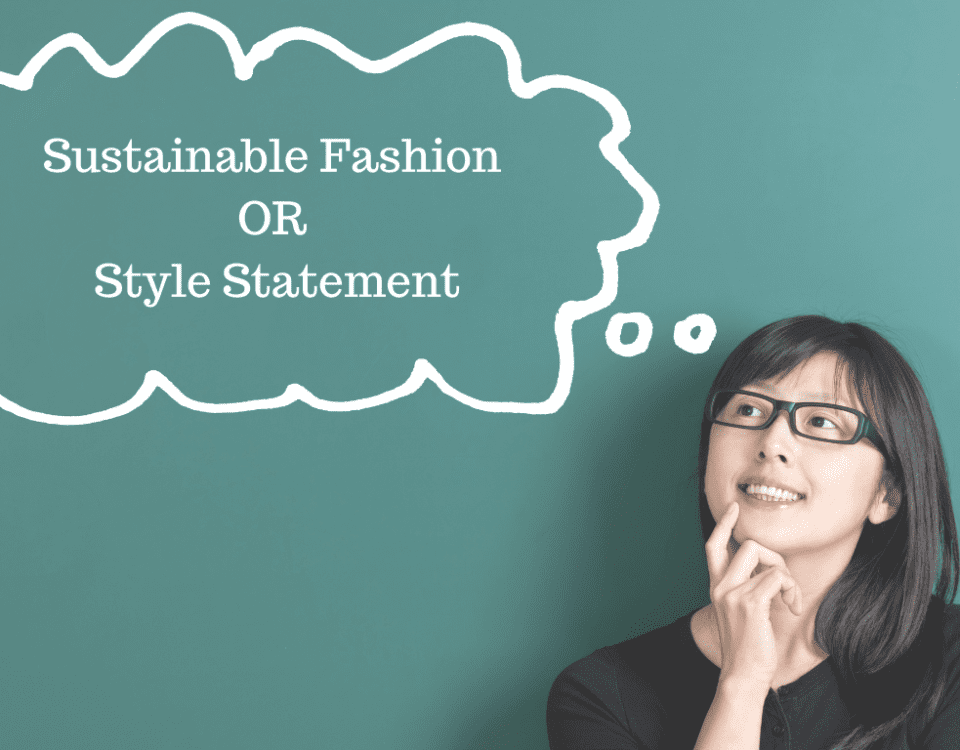Food For Thought: Is Sustainable Fashion the Ultimate Style Statement?
The fashion industry has witnessed hundreds and thousands of movements and trends. However, with the increasing environmental impact that is being caused by fast fashion, a new movement is reshaping the industry, which is sustainable fashion. With more designers and brands adopting the eco-friendly model, the question arises: Can sustainability be synonymous with style?
The answer Is definitely yes. Today, sustainable fashion is not just about ethics and paying less attention to looks. It is also about aesthetics, innovation, and exclusivity. Modern consumers no longer have to choose between looking stylish and making environmentally responsible choices. In fact, many sustainable brands are setting new trends, proving that eco-conscious choices can be fashionable.
The Evolution of Sustainable Fashion

For years, sustainability in fashion was associated with bland, unappealing, and basic designs. Many believed that choosing eco-friendly clothing meant giving up on the attributes of style. However, as of late, some high-end designers have been leading the change. Luxury fashion brands like Stella McCartney, Eileen Fisher, and Gabriela Hearst have incorporated sustainability into their collections without compromising high fashion aesthetics.
The invention of many innovations such as organic cotton, Tencel, bamboo fabric, and plant-based leather have brought a sense of luxury attached to sustainable clothing and fashion. It has to be said that the influence of celebrities is paramount in shaping consumers’ perceptions towards sustainable fashion. Billie Eilish wears upcycled clothes in her concerts, and Emma Watson wears sustainable red-carpet looks to create meaningful conversations and help spread the message of sustainability.
Why Sustainable Fashion Is The Future Of Style?
I believe sustainability won’t be just another passing ship on the horizon. The reason why I believe this is because of:
- Unique Designs
Sustainable fashion focuses on quality over quantity. Unlike mass-produced fast fashion, sustainable brands often use exclusive production methods, making their products’ value feel more exclusive. Vintage, upcycled, and handcrafted pieces are now considered premium, and customers are also willing to pay a premium. - Ethical and Transparent Production
Consumers are more socially aware and prefer brands that align with their values. Ethical fashion brands prioritise fair wages, safe working conditions, and cruelty-free practices. Labels like PANGAIA, Reformation, and People Tree are examples of this. - High-Quality, Durable Pieces
Fast fashion is known for its short-lived trends and poor-quality garments. Sustainable fashion, on the other hand, promotes slow fashion—creating timeless and durable pieces that stay in style for years. Investing sustainably is not just good for the planet but also great for having a trusty wardrobe. - Versatility and Minimalism
Sustainability encourages mindful consumption, leading to the rise of capsule wardrobes—a collection of essential, high-quality, and versatile pieces that can be styled in multiple ways. Minimalist fashion trends show that less is more. - Innovation in Fashion Technology
Sustainable fashion is also about cutting-edge innovation: Bio-fabricated leather like Mylo by Bolt Threads looks and feels like genuine leather but is made from mushrooms. Recycled ocean plastic is transformed into sneakers, swimwear, and couture dresses. 3D printing and zero-waste production techniques reduce fabric waste while creating stunning, futuristic designs.
The Role Of Consumers In Making Sustainability Stylish

Sustainable fashion is not just about brands and designers—consumers are crucial in mainstreaming it. Here’s how individuals can embrace eco-conscious style:
- Choose Quality Over Quantity
Instead of buying trendy, cheap outfits that wear out quickly, invest in well-made, timeless pieces that last longer and stay stylish in your wardrobe.
2. Support Sustainable Brands
Brands like Veja, Stella McCartney, and Rapanui are at the forefront of the sustainable fashion revolution.
3. Thrift, Upcycle, and Rent Fashion
Thrifting reduces wastage and extends the life of old clothes. Upcycling allows you to transform old clothes into modern, trendy outfits. Fashion rental services like Rent the Runway and HURR let you wear luxury fashion without making waste of your own.
4. Be Mindful of Materials
Look for organic, biodegradable, and recycled fabrics like hemp, bamboo, and Tencel. Avoid synthetic fabrics like polyester, which contribute to microplastic pollution.
5. Take Care of Your Clothes
Extending the lifespan of your clothes by washing them properly, repairing minor damages, and repurposing old outfits is a stylish way to embrace sustainability. Just going through the instructions on your clothes can help improve the lifestyle of your clothes exponentially.
Debunking Myths: Sustainable Fashion Is Stylish, Not Boring

There are still many misconceptions about sustainable fashion, such as:
“Sustainable clothing is too expensive”: While some eco-brands are expensive, many offer affordable choices that you could look into
“Eco-friendly fashion is plain and outdated”: Modern sustainable fashion is on par with some of the biggest trends in fashion right now.
“Sustainable brands don’t offer a variety”: From streetwear to formal wear, you can find a piece of sustainable clothing in every silhouette.
Sustainability and Style Go Hand in Hand

A powerful visual of fast fashion waste—piles of discarded clothing highlighting the industry’s environmental impact. Image Source: Pexels”
Sustainability and style are no longer separate concepts. Today’s fashion world proves that eco-conscious choices can be bold, trendy, and luxurious. The rise of sustainable materials, ethical production, and innovative designs shows that sustainability is not just a movement but the future of fashion.
By embracing sustainable fashion, consumers are not just making an environmentally responsible choice—they are setting new trends that redefine what it means to be stylish in the modern world.
The fusion of sustainability and style is redefining the fashion industry, proving that looking good does not have to come at the cost of the planet. Designers, brands, and consumers are embracing ethical fashion, making it more than just a trend—it’s a movement towards a better future. We can transform the industry by making mindful fashion choices, supporting sustainable brands, and valuing quality over quantity.
Sustainability is not the opposite of style—it is the next evolution of it. Fashion-forward consumers today recognise that true luxury lies in clothing that is beautiful and responsible. As innovation continues and demand for eco-friendly fashion grows, sustainability and style will not just be synonymous but inseparable.
Author: Kiran Jose
Reference







1 Comment
Darryl Khan
11 months agoloved it